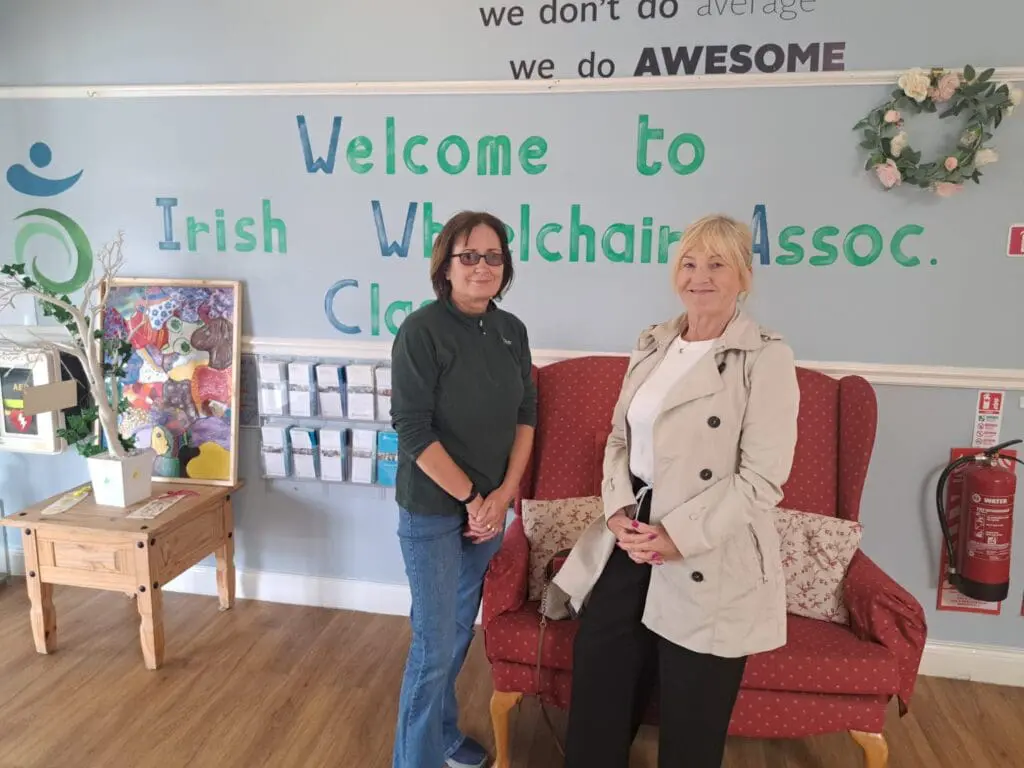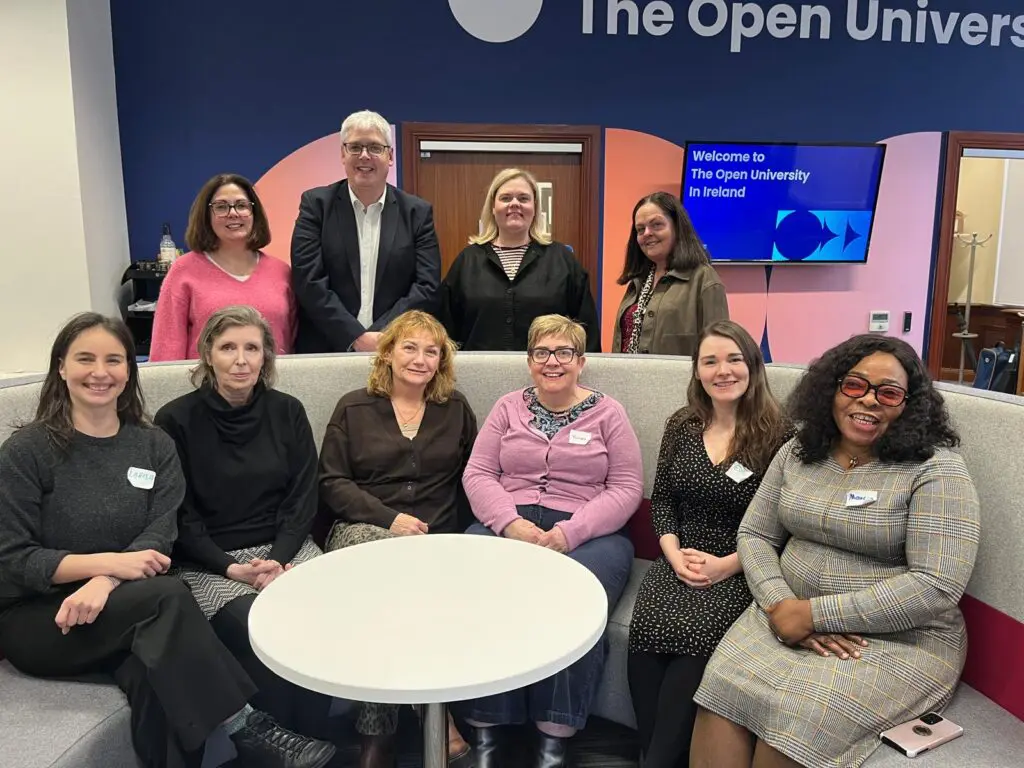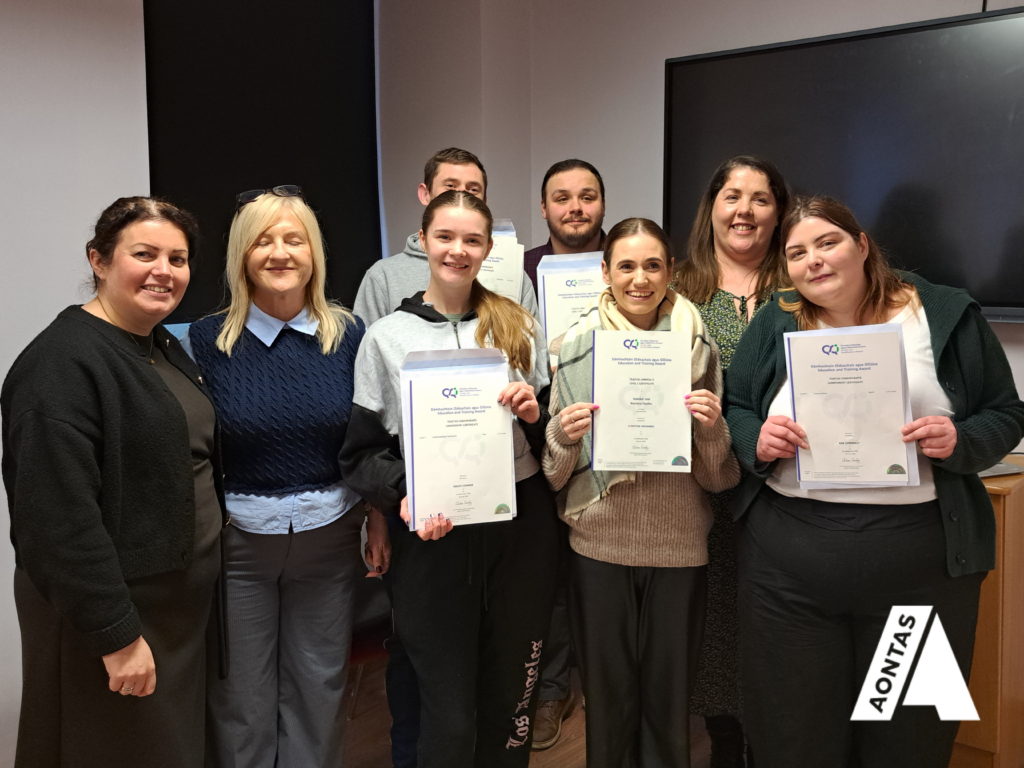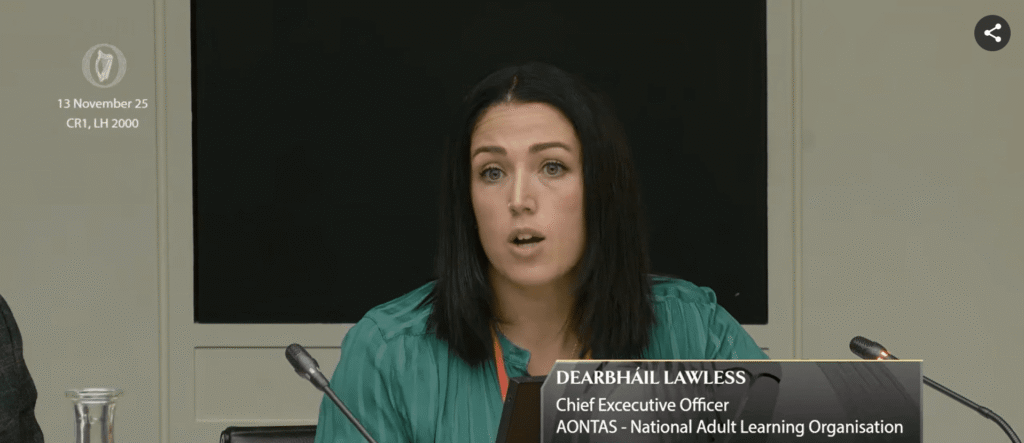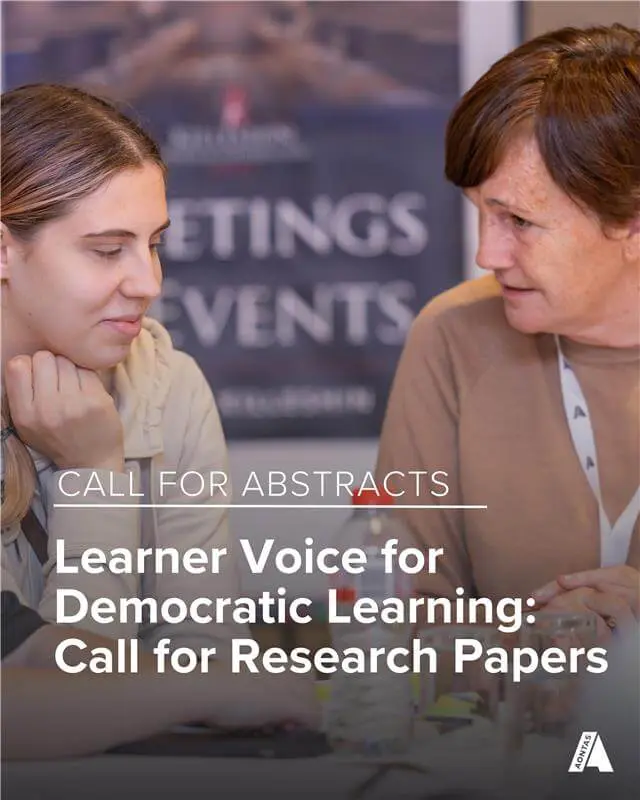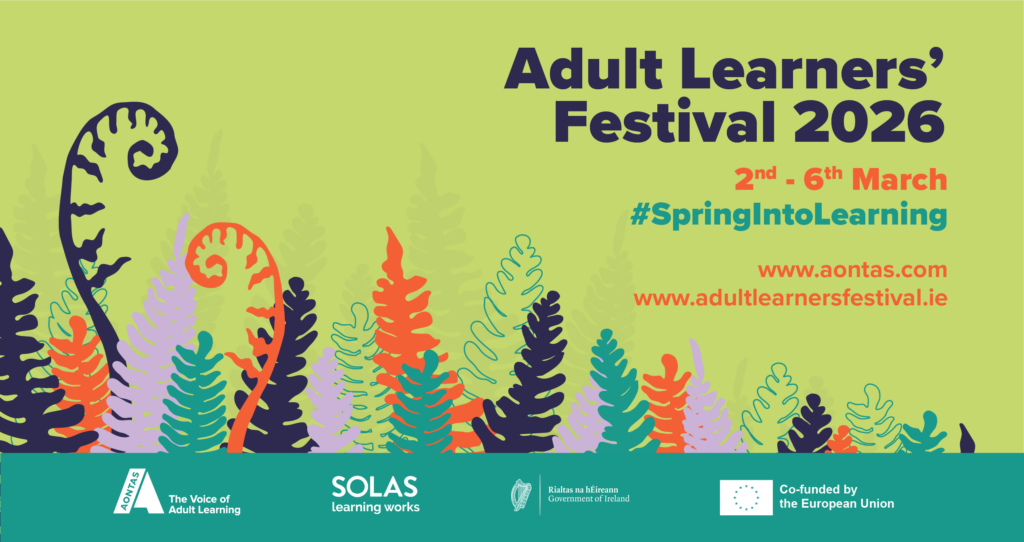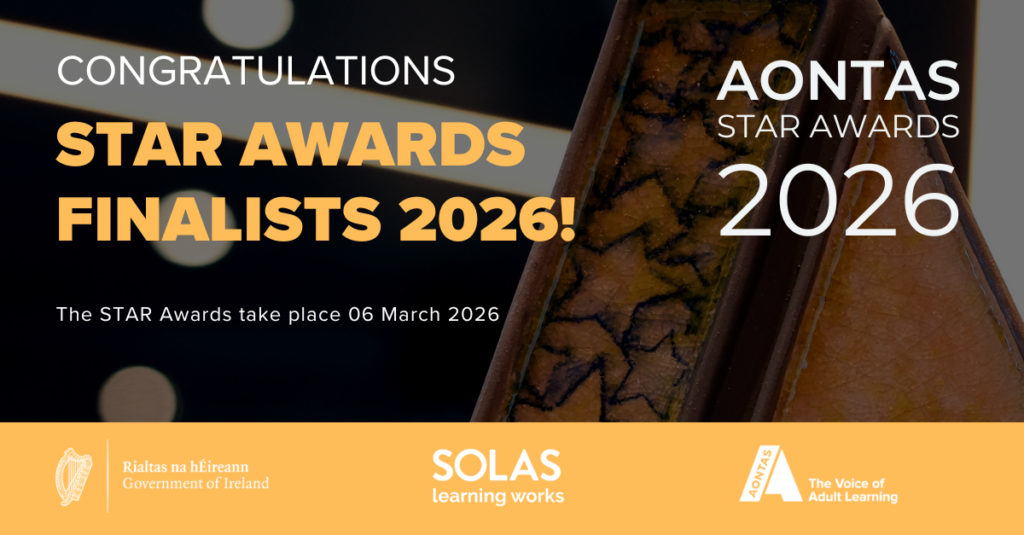The gardens at the centre are a true highlight, featuring a polytunnel bursting with vegetables, a fruit garden, beekeeping, and even a butterfly garden. These tranquil outdoor spaces allow learners to take classes in nature when the weather permits. Eileen proudly pointed out the beautiful pergola, funded by the REACH initiative, which provides a vital outdoor learning space. She emphasised how important it is for people with disabilities to have opportunities to spend time outdoors, something they may not often get to do.
Eileen also spoke passionately about the importance of community and connection. She encourages members of the local community to get involved and support the learners. If someone has a skill they can share—be it gardening, crafts, music, or anything else—Eileen is always happy to hear from them. She believes that this kind of community engagement is a powerful way to break down barriers and shift perceptions, allowing people with disabilities to be seen for their capabilities rather than perceived limitations.

The centre’s collaboration with the Kildare and Wicklow Education and Training Board (KWETB) is another example of inclusive learning in action. Learners from KWETB’s horticulture programme share the garden space with IWA service users, fostering mutual learning and social cohesion. Eileen highlighted how these interactions help break down stereotypes, allowing all participants to be seen simply as learners, with hopes, dreams, and talents.
Speaking with the learners, it was clear how much the centre means to them. Marie, who previously worked full-time in the service industry before developing a degenerative disease that left her paralysed, shared her story. She described how isolation and depression took hold until a public health nurse introduced her to the IWA. “They saved my life and gave me back my confidence,” she said. Marie has taken part in many classes—art, felting, computers—but it’s the support she receives that has made the biggest difference. “When I need help with other services, they’re there to guide me.”

Eileen explained that staff do their best to provide wraparound support, often pointing learners toward services like Citizens Information. These supports are vital, but can stretch staff resources. This is a unique and essential aspect of community education—something AONTAS continues to champion—where the relationship between staff and learners is central to building confidence and helping learners achieve their goals.
Another learner, Grace, shared: “At the IWA, I’m not Grace with the brain tumour, or Grace in a wheelchair—I’m just Grace, the person. I don’t know where I’d be without it. I love it here. I take lots of classes, especially art, and I’m very good at it.” Grace also told me how wonderful the tutors provided by KWETB are in supporting the learners, their compassion, patience, and humour. She spoke about having tutors like this to help her confidence and how that is so important to her.
Eileen expressed her gratitude for the support from AONTAS and said she would welcome further training opportunities, particularly in transformative learning and universal design, to better support her learners.
The IWA in Clane is a shining example of inclusive, community-driven education that respects and uplifts every individual.
For more information on how to get involved or support the centre, please contact the Irish Wheelchair Association.
